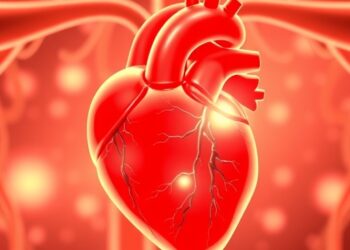Some private UK biobanks may be misleading expectant parents about the value of storing umbilical cord blood to treat life-threatening diseases that may arise in their child in the future, reveals an investigation by The BMJ, published today.
Some private UK biobanks may be misleading expectant parents about the value of storing umbilical cord blood to treat life-threatening diseases that may arise in their child in the future, reveals an investigation by The BMJ, published today.
Over the past decade growing numbers of parents have chosen to store blood from the umbilical cord, which contains stem cells, in case their infant develops a condition that could be treated with stem cell therapy.
Parents must use a private biobank which charges around £550 to £3000 for freezing a baby’s umbilical cord blood. On top of this, parents must pay an annual storage fee of over £100 to keep samples frozen.
Private biobanks market their umbilical cord blood banking services to expectant parents as an investment in protecting their child’s future health alongside claims that stem cell based therapies have been used successfully to treat a wide range of potentially life-threatening diseases, from cerebral palsy to leukaemia.
But experts in regenerative medicine say many of these companies’ marketing claims are misleading.
For example, Cells4Life, which describes itself as the UK’s largest provider of cord blood banking services, claims that “umbilical cord blood is routinely used in treatments for over 80 different conditions and diseases,” including cancers, blood disorders, immune disorders, and autism. It adds that umbilical cord blood stem cells are “pure and plastic,” meaning that “they can become almost any tissue type in the body and may even be used to regrow entire organs.”
The investigation also found that Cells4Life markets its services on questionable evidence published in the Journal of Stem Cells Research, Development & Therapy. Although the journal claims to operate a peer review process, the research article referenced by Cells4Life was published in the journal just 17 days after receipt—a timescale far shorter than the 12-14 weeks typical for peer reviewed journals. The BMJ contacted two editors listed on the journal’s editorial board who said they did not in fact hold these roles.
SmartCells, another private cord blood bank service, claims on their website that the possibilities for using stem cells are endless as these cells “have the ability to repair, replace, and regenerate cells of almost any kind.” The website of another service, Future Health, lists more than 75 genetic, immune and blood disorders that can be treated.
Charles Murry, director of the Institute for Stem Cell and Regenerative Medicine at the University of Washington, Seattle, and Pietro Merli, a paediatrician at the Bambino Gesù Pediatric Hospital in Italy, said the list of applications is unrealistic.
Murry says the list is based on claims by people in the late 1990s that these cells have the plasticity to become almost any type of cell in the body—claims which have been “very rigorously disproven.”
He said that umbilical cord blood contains adult stem cells which limits the types of cells they can become—haematopoietic stem cells (HSCs) can become blood cells, and mesenchymal stem or stromal cells (MSCs) can build connective tissue such as bone, cartilage, tendons, ligaments, muscles, and bone marrow.
Cells4Life said, “Any cursory search of published literature on future applications of perinatal stem cells demonstrates the huge potential that cord blood holds for use in regenerative medicine in the future.”
It pointed to research which suggests that MSCs can be transformed into inducible pluripotent stem cells (iPSCs) which can mimic embryonic stem cells and are therefore capable of forming any tissue except germ cells (precursors of egg and sperm cells).
Murry highlighted that transforming stem cells into iPSCs requires highly trained stem cell scientists and that iPSCs can also be created from adult blood or skin cells meaning that cord blood banking is unnecessary.
Merli, who uses stem cell therapy to treat his patients, says many of the conditions he treats do not require autologous stem cells (harvested from the patient) and that allogeneic stem cells (from matched donors) can be used instead.
He said that leukaemia was one of the few conditions where doctors might use stem cells harvested from the patient, but that these could be taken from the patient’s bone marrow so there was no benefit to harvesting and storing stem cells from cord blood.
He added that in Italy it is illegal for stem cell therapy companies to make such claims in their advertising.
Neither SmartCells nor Future Health responded to The BMJ’s request for comment.
Both the Royal College of Obstetricians and Gynaecologists and the Royal College of Midwives do not recommend commercially harvesting umbilical cord blood, unless there’s a specific medical reason to do so.
[Ends]
Journal
The BMJ
Method of Research
News article
Subject of Research
Not applicable
Article Title
Cord blood banking: Experts raise concern over claims made for stem cell applications
Article Publication Date
24-Jul-2024
COI Statement
I have read and understood the BMJ Group policy on declaration of interests and have no relevant interests to declare.




